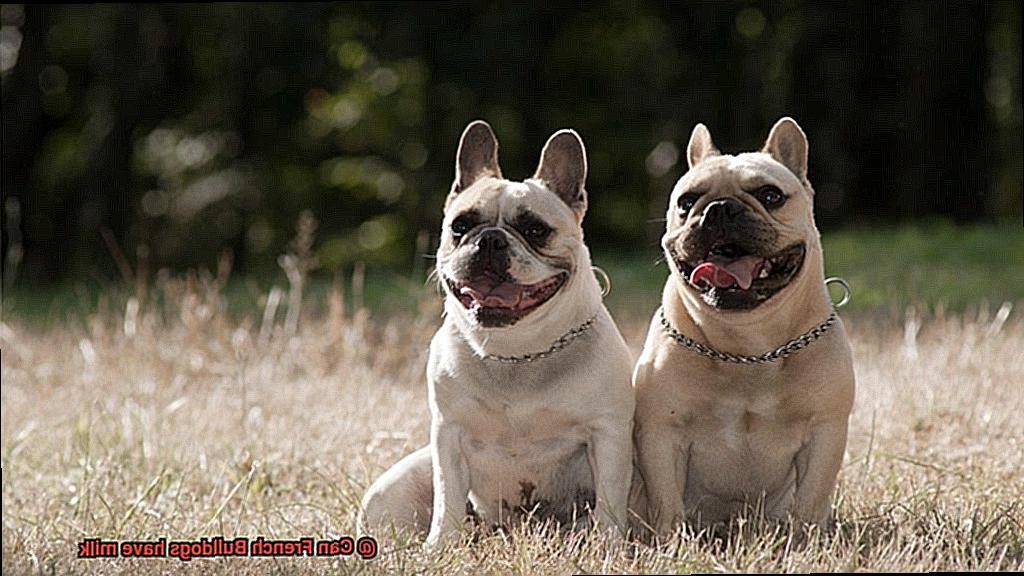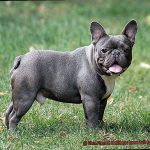Can French Bulldogs have milk?
With their squishy faces and playful antics, these pint-sized pooches have stolen hearts around the world. As devoted pet parents, we’re always on the lookout for ways to spoil our furry companions. But when it comes to their diet, we must navigate the treacherous waters of nutritional dos and don’ts. One question that sparks lively debate among Frenchie fanatics is whether our four-legged friends can partake in a milky delight. So, can French Bulldogs sip from the creamy elixir? Let’s dive into the dairy dilemma and uncover the truth.
Can French Bulldogs have milk?
Contents
- 1 Can French Bulldogs have milk?
- 2 Understanding the Digestive System of French Bulldogs
- 3 The Risks of Giving Your French Bulldog Milk
- 4 Lactose Intolerance in French Bulldogs
- 5 Dairy Products and Their Impact on French Bulldogs
- 6 Alternatives to Cow’s Milk for French Bulldogs
- 7 Nutritional Benefits of Non-Dairy Milk for Dogs
- 8 Consulting with a Veterinarian Before Feeding Your Dog Dairy Products
- 9 A Balanced Diet for Your French Bulldog
- 10 Conclusion
Pros of Milk for French Bulldogs:
Picture this: your Frenchie snuggled up beside you, lapping up a bowl of milk like a contented little prince or princess. It’s an image that warms your heart. And there are some potential benefits too. Milk, especially cow’s milk, contains vital nutrients like calcium and protein that support bone development and muscle health in growing Frenchies. Plus, let’s not forget about the cozy factor—a creamy drink can provide a sense of comfort and relaxation for your furry sidekick.
Cons and Health Risks:
Before you start pouring milk into your Frenchie’s bowl with reckless abandon, hold your horses. Not all dogs have stomachs as tough as nails. French Bulldogs, being part of the brachycephalic breed family, are prone to digestive issues and food sensitivities. Lactose intolerance is a common culprit among our canine buddies—especially as they age—causing unpleasant symptoms like diarrhea, vomiting, or enough gas to launch them into outer space.
But wait, there’s more. Down too much moo juice without caution and your Frenchie could end up packing on extra pounds faster than you can say “biscuit.” Obesity in French Bulldogs can lead to a whole host of health problems, from creaky joints to a strain on their precious little hearts. And let’s not forget about pancreatitis, an inflammation of the pancreas that can be triggered by the high-fat content in milk—ouch.
Finding a Healthy Alternative:
Don’t fret, fellow Frenchie enthusiasts. While milk may not be the best choice for our beloved pups, there are plenty of other options that tick all the boxes without causing tummy troubles. Low-lactose or lactose-free milk alternatives, like specially
Understanding the Digestive System of French Bulldogs
French Bulldogs are adorable and lovable pets, but when it comes to their digestive system, they have some unique characteristics. One important consideration is whether they can tolerate milk. In this article, we will explore the digestive system of French Bulldogs, why they may not be able to tolerate milk, and provide alternative sources of nutrients for their diet.
Anatomy of the Digestive System:
The digestive system of French Bulldogs, like all dogs, consists of the mouth, esophagus, stomach, small intestine, large intestine, and rectum. Food is broken down in the mouth through chewing and travels down the esophagus into the stomach. In the stomach, digestive enzymes and acids further break down the food. The partially digested food then moves into the small intestine for nutrient absorption. Any undigested food passes into the large intestine where water is absorbed, and waste products are formed into feces.
Why French Bulldogs May Not Tolerate Milk:
Many French Bulldogs, like other adult dogs, are lactose intolerant. Lactose is a sugar found in milk and dairy products. As dogs age, their production of lactase, the enzyme that breaks down lactose, decreases. This makes it difficult for them to digest lactose effectively. Consuming milk or other lactose-containing products can lead to digestive issues such as bloating, gas, diarrhea, and stomach discomfort.
Alternative Sources of Nutrients:
If you’re looking for alternative sources of calcium or nutrients for your French Bulldog, there are many options available. Consult with your veterinarian to determine the best diet for your furry friend’s specific needs. They can recommend high-quality dog food and supplements that meet all of their nutritional requirements without the potential complications associated with lactose intolerance.
The Risks of Giving Your French Bulldog Milk
If you’re a French Bulldog owner and you’ve ever wondered if it’s safe to give your furry friend a little taste of milk, you’re not alone. Many dog owners have pondered this question, and I’m here to shed some light on the topic. As an expert in French Bulldog nutrition, I’ve done extensive research and have some valuable insights to share with you. So let’s dig in and explore the risks associated with giving your French Bulldog milk.
- Lactose Intolerance: Just like some humans, dogs can also have difficulty digesting lactose, the sugar found in milk. French Bulldogs, in particular, are known to have a higher likelihood of lactose intolerance compared to other breeds. When a dog is lactose intolerant, consuming milk can lead to gastrointestinal issues such as diarrhea, vomiting, and stomach discomfort.
- Upset Stomach: Even if your French Bulldog is not lactose intolerant, milk can still cause an upset stomach. This is because milk is not a natural part of a dog’s diet and introducing it can disrupt their digestive system. The high-fat content in milk can be difficult for dogs to process, leading to digestive issues and discomfort.
- Obesity: Another risk of giving your French Bulldog milk is the potential for weight gain and obesity. Milk contains calories and fat, which can contribute to excessive weight gain if consumed regularly or in large amounts. French Bulldogs are already prone to weight gain due to their low activity levels and tendency to overeat. Adding milk to their diet without considering the calorie intake can further increase their risk of obesity and related health problems.
- Allergic Reactions: Some French Bulldogs may have allergies or sensitivities to certain components of milk. These allergies can manifest as skin irritations, itching, hives, or even more severe reactions like difficulty breathing or anaphylaxis. It is important to monitor your dog for any signs of an allergic reaction if you choose to give them milk.
- Calcium Imbalance: While milk is often associated with calcium, it is not necessarily the best source for dogs. Giving excessive amounts of milk to your French Bulldog can disrupt the delicate balance of calcium and phosphorus in their bodies. This imbalance can lead to skeletal issues, including bone deformities or conditions like osteochondrosis.
To summarize, giving milk to your French Bulldog comes with several risks, including lactose intolerance, upset stomach, obesity, allergic reactions, and calcium imbalance. It is generally recommended to avoid giving milk to French Bulldogs altogether. Instead, focus on providing them with a balanced and appropriate diet that meets their nutritional needs without the potential risks and complications associated with milk consumption.
Lactose Intolerance in French Bulldogs
If you’ve ever wondered whether your furry friend can enjoy a nice glass of milk, I’m here to give you the lowdown. As an expert in French Bulldog nutrition, I’ve dug deep to uncover some fascinating facts. So, let’s dive into the dangers of lactose intolerance and why it’s best to keep that milk away from your four-legged companion.
Understanding Lactose Intolerance in French Bulldogs:
What is lactose intolerance?
Lactose intolerance is a condition where the body lacks enough lactase enzyme to break down lactose, a sugar found in milk and dairy products. This can lead to digestive issues like bloating, gas, diarrhea, and discomfort for your French Bulldog.
Are French Bulldogs prone to lactose intolerance?
Just like humans, French Bulldogs can develop lactose intolerance. While some may have a higher tolerance for dairy, it’s always better to err on the side of caution when introducing milk or dairy into their diet.
Signs and Management:
Recognizing lactose intolerance symptoms:

Keep an eye out for gastrointestinal symptoms such as diarrhea, vomiting, gas, and bloating after your Frenchie consumes milk or dairy products.
Say no to dairy:
To manage lactose intolerance in French Bulldogs, it’s best to avoid feeding them milk and dairy altogether. There are plenty of safe alternatives available that offer similar nutritional benefits without the risk of digestive issues.

Consult a veterinarian:
If you suspect your French Bulldog is experiencing digestive problems, it’s essential to consult with a veterinarian for a proper diagnosis and guidance on managing their diet. Other conditions like food allergies or sensitivities could also be contributing factors.
Conclusion:
French Bulldogs may be irresistibly cute, but their lactose tolerance is not as strong as their charm. As responsible pet parents, it’s crucial to recognize the signs of lactose intolerance and make dietary adjustments accordingly. By avoiding milk and dairy products and seeking professional advice, you can ensure your French Bulldog stays happy and healthy. So, let’s keep those milk cartons out of their reach and focus on nourishing our furry friends in the best way possible.
Dairy Products and Their Impact on French Bulldogs
French Bulldogs may have a weakness for milk, but unfortunately, their love affair with dairy can lead to some serious tummy troubles. As an expert in French Bulldog nutrition, I’ve done my research and gathered some valuable information to help you navigate the dairy dilemma.
Lactose Intolerance: A Common Culprit
Just like many other dog breeds, French Bulldogs are lactose intolerant. Lactose, the sugar found in milk and other dairy products, can wreak havoc on their digestive system. You see, lactose is broken down by an enzyme called lactase, which is produced in the small intestine. However, many adult dogs, including French Bulldogs, have low levels of lactase, making it tough for them to digest lactose properly.

The Unpleasant Side Effects
When French Bulldogs consume dairy products containing lactose, they often experience digestive issues like diarrhea, gas, and bloating. These symptoms can be uncomfortable for our furry friends and may even lead to dehydration if not addressed promptly.
Allergic Reactions: A Real Concern
In some cases, French Bulldogs can develop an allergic reaction to dairy products. This can manifest as itchy skin, hives, or even difficulty breathing. It’s crucial for owners to be aware of these signs and consult a veterinarian if their French Bulldog shows any adverse reactions after consuming dairy.
Say No to Lactose.
Milk is not the only culprit here. Other dairy items such as cheese and yogurt also contain lactose. So it’s best to avoid feeding your French Bulldog any dairy products that may contain lactose. Instead, opt for lactose-free alternatives or consult your veterinarian for suitable alternatives or dietary guidance.
Goat’s Milk: A Safer Option?
If your French Bulldog still craves that milky taste or requires a calcium supplement, goat’s milk is often considered easier for dogs to digest due to its lower lactose content. However, it’s essential to monitor your dog’s reaction and introduce new foods gradually.
Individual Tolerance: Varies from Bulldog to Bulldog
It’s worth noting that not all French Bulldogs will have the same level of intolerance to lactose. Some may be able to tolerate small amounts of dairy without any adverse effects. However, it’s always better to err on the side of caution and limit their consumption of dairy products.
Accidental Slip-Ups: A Small Oops is Not the End
If your French Bulldog happens to sneak a sip or nibble of dairy and shows no immediate signs of discomfort or digestive issues, it may not be a cause for concern. However, if your furry friend consistently shows adverse reactions to dairy, it’s best to avoid offering any dairy products altogether.
Alternatives to Cow’s Milk for French Bulldogs
It’s time to address a pressing issue in our beloved pooches’ lives – their affinity for milk and the potential digestive woes that may follow. Fear not, for I, your trusty French Bulldog nutrition expert, have delved into the world of dairy alternatives to help you find the perfect milk substitute for your furry friend. But before we dive into our milky adventure, let’s remember to consult with the canine experts – our veterinarians.
The Trouble with Cow’s Milk
Cow’s milk – a staple in many households. However, for our French Bulldogs, it can spell trouble due to their lactose intolerance. This means their bodies struggle to digest lactose, the sugar found in milk, leading to unpleasant symptoms.
Goat’s Milk – The Creamy Delight
Moooove over cow’s milk. Goat’s milk is gaining popularity as a nutritious alternative for our French Bulldogs. It contains less lactose and is easier on their tummies. Packed with essential nutrients like vitamins, minerals, and proteins, goat’s milk is a creamy delight that can be enjoyed by our furry friends.
Lactose-free or Low-lactose Milk – The Digestive Saviors
If goat’s milk doesn’t tickle your Frenchie’s fancy, fret not. There are specially formulated lactose-free or low-lactose milk options available. These products cater to dogs with lactose intolerance by reducing lactose levels or adding lactase enzyme to aid digestion. They provide a gentle and tummy-friendly option for your furry companion.
Plant-based Milks – Nature’s Nectar
For the adventurous pet parents seeking plant-powered alternatives, we have a treat for you. Plant-based milks like almond milk, coconut milk, and oat milk can be given to our French Bulldogs. Ensure you choose unsweetened varieties and avoid harmful ingredients like chocolate or xylitol. These plant-based options can provide a delicious and lactose-free alternative for your Frenchie.
Consulting the Experts – Veterinarian’s Orders
Before embarking on any dietary changes, it’s crucial to consult with your veterinarian. They possess the knowledge and expertise to assess your French Bulldog’s specific needs and health conditions. Remember, customized advice from the professionals is always a wise move.
Nutritional Benefits of Non-Dairy Milk for Dogs
French Bulldogs are known for their adorable squishy faces and playful personalities. But did you know that they can also benefit from non-dairy milk alternatives just like humans? Traditional cow’s milk may not be recommended for French Bulldogs due to their lactose intolerance, but fear not, there are plenty of other options that can provide essential nutrients without causing digestive issues. Let’s dive into the nutritional benefits of non-dairy milk for our beloved Frenchies.
- Almond Milk: Almond milk is a popular choice for both humans and dogs. It is rich in vitamins and minerals such as vitamin E, calcium, and magnesium. These nutrients can promote healthy skin and coat, strengthen bones, and support overall immune function in French Bulldogs. Just make sure to choose unsweetened almond milk without any added flavors or sweeteners, as these can be harmful to our furry friends.
- Coconut Milk: Another non-dairy option that can provide numerous health benefits to French Bulldogs is coconut milk. It is a good source of medium-chain triglycerides (MCTs), which are healthy fats that can aid in digestion and promote energy production. Coconut milk also contains lauric acid, which has antibacterial and antiviral properties that can help boost the immune system. Remember to select unsweetened coconut milk without any additives or preservatives.
- Oat Milk: Made from oats and water, oat milk is a safe and nutritious choice for French Bulldogs. It is packed with fiber, which can aid in digestion and regulate bowel movements. Oat milk also contains beta-glucans, a type of soluble fiber that can help lower cholesterol levels and support heart health in French Bulldogs. Additionally, it is rich in vitamins B and E, as well as minerals such as calcium, iron, and potassium.
But what about the overall nutritional benefits of non-dairy milk for French Bulldogs? Non-dairy milks are often fortified with vitamins and minerals that are essential for maintaining a balanced diet. These include calcium, which supports bone health, and vitamin D, which aids in calcium absorption. They can also provide essential fatty acids, such as omega-3 and omega-6, which are beneficial for skin and coat health. Additionally, the protein content in non-dairy milks can contribute to muscle development and repair.
Now, before you rush to the store to stock up on non-dairy milks for your French Bulldog, there are a few considerations and precautions to keep in mind. It is important to introduce these milks gradually and monitor your Frenchie for any adverse reactions. Some dogs may have allergies or sensitivities to certain ingredients found in non-dairy milks, so it is crucial to observe any signs of digestive upset or allergic reactions such as itching, vomiting, or diarrhea. And remember, always choose unsweetened and unflavored options to avoid any potential harm from added sugars or artificial additives.
Consulting with a Veterinarian Before Feeding Your Dog Dairy Products
French Bulldogs are known for their charm and lovable personalities. As a responsible pet owner, it’s important to ensure that we provide them with the best nutrition possible. However, before you consider feeding your furry friend any dairy products, it is crucial to consult with a veterinarian. In this article, we will explore why seeking professional advice is essential and discuss alternative options to meet your French Bulldog’s dietary needs.
Understanding Lactose Intolerance in French Bulldogs:
Like many other dog breeds, French Bulldogs can be lactose intolerant. Lactose, a sugar found in milk and dairy products, can cause digestive issues in dogs who lack the necessary enzyme to break it down. Symptoms of lactose intolerance include diarrhea, vomiting, gas, and stomach discomfort. Feeding your French Bulldog milk or dairy products without consulting a veterinarian may lead to unnecessary discomfort and health issues.
The Importance of Veterinary Consultation:
- Individual Assessment: Each French Bulldog is unique, and their dietary needs may vary. A veterinarian will assess your dog’s overall health, medical history, and specific nutritional requirements before recommending any dietary changes.
- Identifying Lactose Intolerance: Through professional examination and testing, a veterinarian can determine if your French Bulldog is lactose intolerant. This will help prevent any potential digestive problems that could arise from consuming dairy products.
Alternative Options for Dairy Substitutes:
If your furry friend is lactose intolerant, there are several alternatives available to ensure they receive the necessary nutrients found in milk:
- Lactose-Free Dog Milk: These specially formulated products provide the benefits of dairy without the lactose. They are easily digestible for lactose-intolerant dogs.
- Goat’s Milk: Many French Bulldogs tolerate goat’s milk well due to its lower lactose content. It serves as a nutritious and tasty substitute for traditional cow’s milk.
A Balanced Diet for Your French Bulldog
French Bulldogs are known for their adorable smushy faces and playful personalities. As a proud owner of a Frenchie, you want to ensure that your furry friend stays healthy and happy. One way to achieve this is by providing them with a balanced diet that meets their nutritional needs. In this article, we will delve into the components of a balanced diet for your French Bulldog.
- Protein-Packed Meals: Protein is essential for muscle development and repair in your French Bulldog. Opt for lean meats like chicken, turkey, and beef as high-quality protein sources. Fish such as salmon and sardines are also excellent choices, as they provide beneficial omega-3 fatty acids. These nutrients aid in maintaining a healthy coat and supporting overall vitality.
- Complex Carbohydrates for Energy: Carbohydrates are the primary source of energy for your French Bulldog’s daily activities. Choose complex carbohydrates found in whole grains like brown rice and oats. These options provide sustained energy, unlike simple carbohydrates found in white rice or refined flour products.
- Healthy Fats for Skin and Coat Health: Contrary to popular belief, fats are crucial for your Frenchie’s diet. They provide a concentrated source of energy and support healthy skin and coat. Include sources like fish oil, flaxseed oil, and olive oil in their meals. However, remember to moderate fat intake to prevent obesity.
- Vitamins and Minerals from Fresh Foods: While commercial dog food often contains added vitamins and minerals, supplementing your French Bulldog’s diet with fresh fruits and vegetables is beneficial. These natural sources offer a wide range of vitamins such as A, C, E, and minerals like calcium, potassium, and iron.
- Hydration is Key: Water is often overlooked but plays a vital role in maintaining your French Bulldog’s overall health. Ensure they have access to clean and fresh water at all times to prevent dehydration and maintain healthy bodily functions.
Remember, your French Bulldog is unique, and their dietary needs may vary based on factors like age, activity level, and any underlying health conditions. Consult with your veterinarian to tailor their diet to their individual needs.
gjnHswPuEHo” >
Conclusion
In conclusion, it is important to note that French Bulldogs should not be given milk.
While they may enjoy the taste, their bodies are not equipped to properly digest lactose. This can lead to digestive issues such as diarrhea, stomach upset, and even potential allergies.
If you have any concerns about your pet’s nutrition, it is always recommended to consult with a veterinarian who can provide expert guidance tailored to your furry friend’s specific needs.




